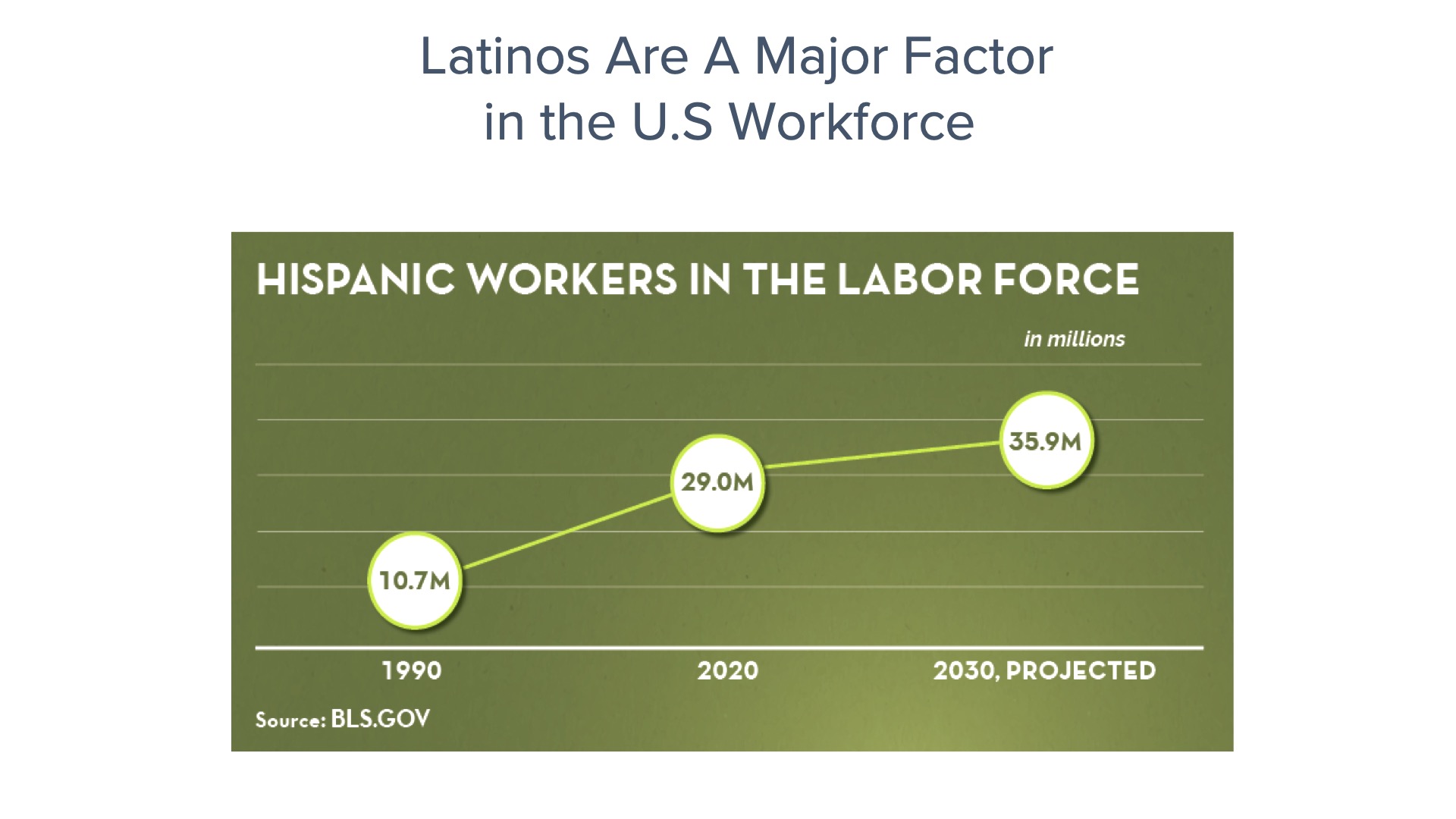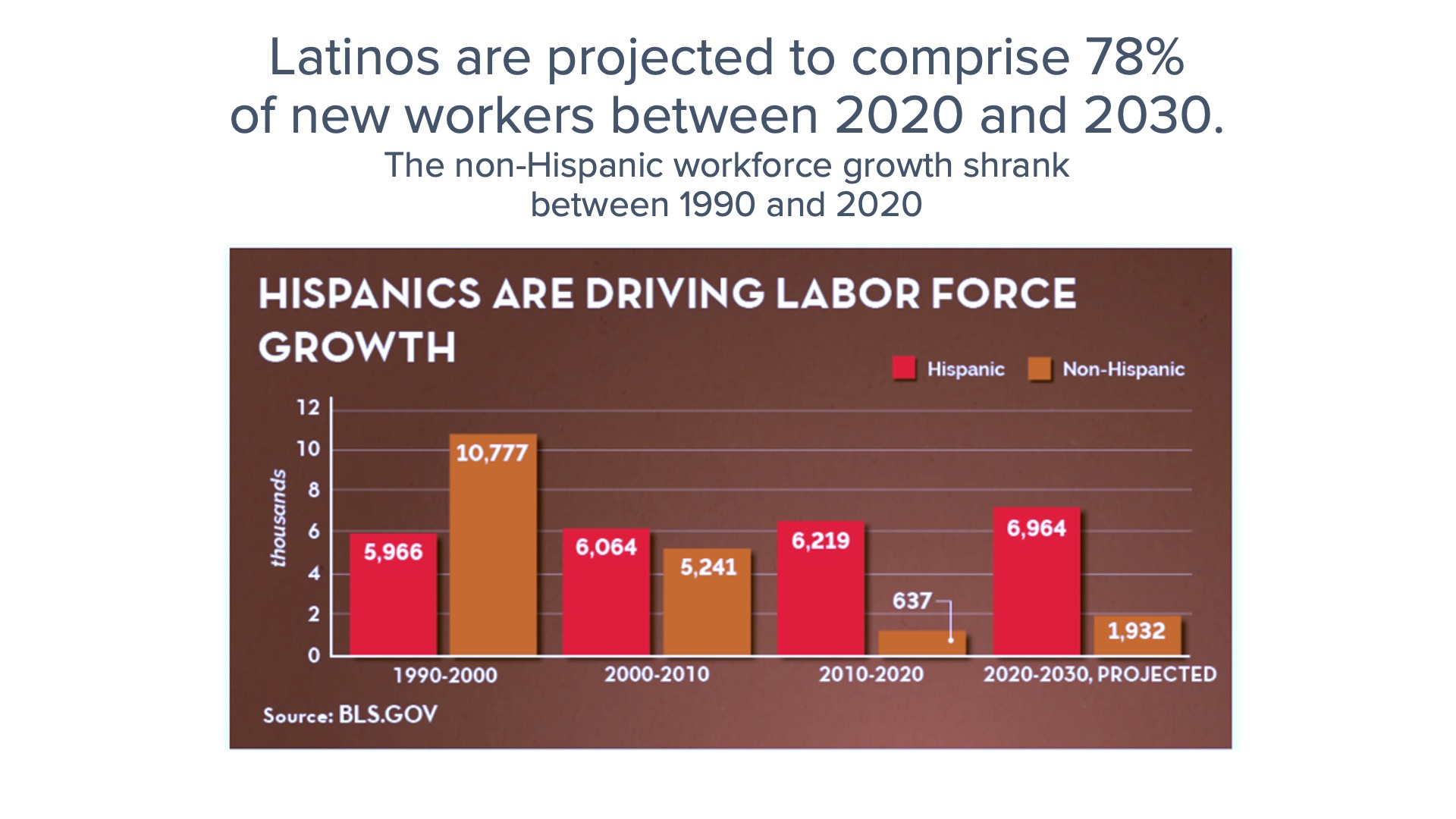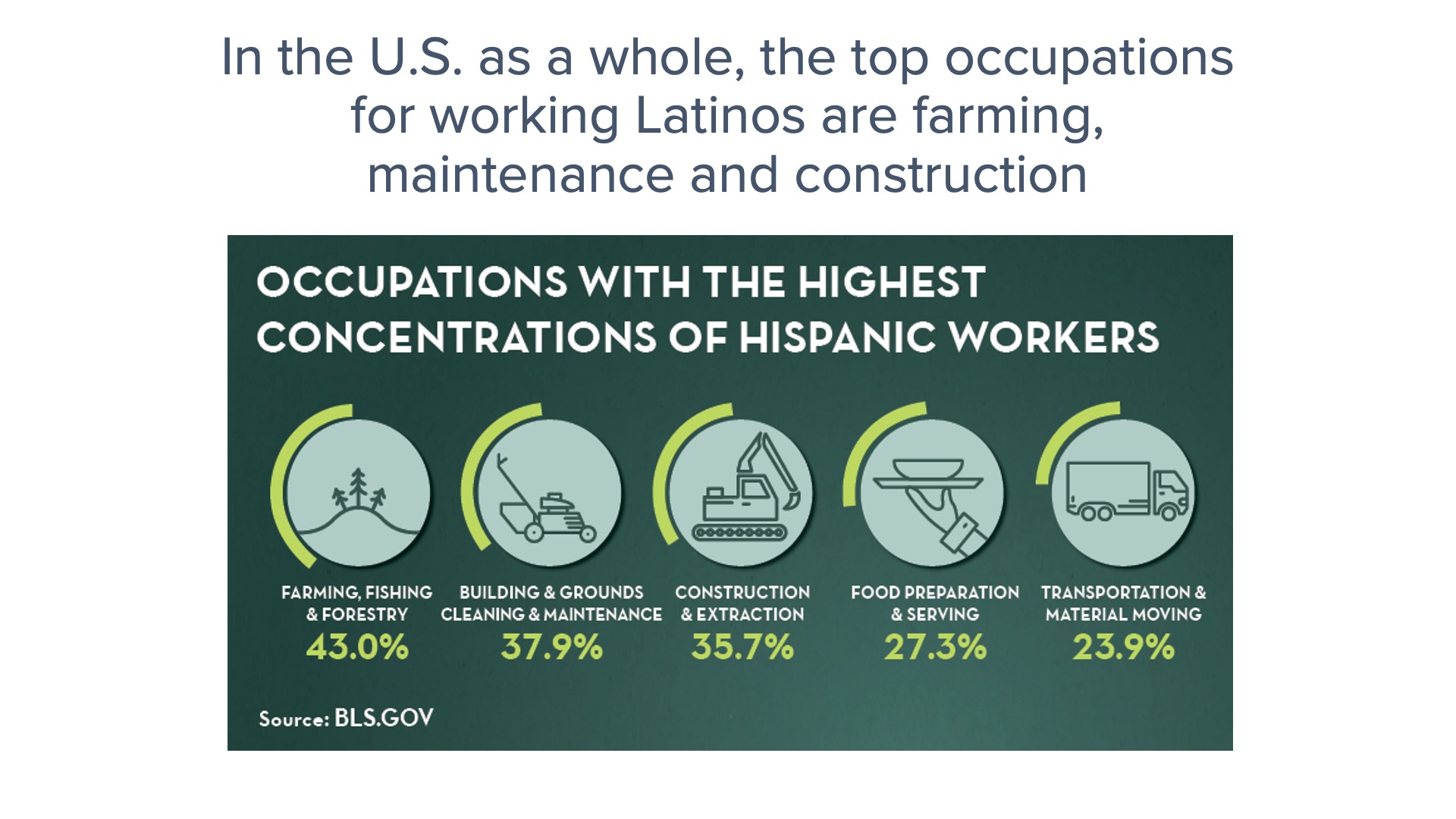
From the earliest days of European settlement, Latinos have played a crucial role in the remarkable ascendancy of California. However, as they become the majority of the state’s population, workforce, and students, the trajectory of Latinos is being blocked by policies hostile to traditional middle-class values, like homeownership, entrepreneurial freedom, educational progress, savings, and security. As more of California’s historically white middle class depart to other states, Latinos are now primed to occupy that void.
Latinos, the key to the future middle class, face a difficult road towards upward mobility, particularly here in California Although they have made some remarkable progress toward higher wage positions, Latinos still face serious challenges due to a dysfunctional public education system and an unhelpful regulatory regime that works against smaller, less capitalized businesses. According to the Small Business Regulation Index, California has the worst business climate for small firms in the nation.
Latinos exhibit a remarkable propensity for entrepreneurship in the United States, initiating more businesses per capita than any other racial or ethnic group. While most Latino small businesses are small and family-run, they represent the fastest-growing group of entrepreneurs in the United States. Over the past decade, Latino business owners grew 34%, compared to only 1% for all business owners. Yet, Latinos face significant challenges in accessing relief, with their applications for Payroll Protection Program loans being approved at only half the rate compared to those submitted by white business owners.

At the same time, California’s policies have systematically weakened crucial blue-collar sectors such as energy, construction, and manufacturing – key sources of employment for Latino workers – resulting in stagnation or decline. Concurrently, stringent environmental regulations also have contributed to soaring home prices in California, reaching the highest levels in the nation.
Access to quality education is foundational to achieving the American Dream. Yet, California’s children are educationally redlined into their “local” zip-code-determined schools even when state officials know that these schools are failing, a form of institutionalized racism that still exists today. Latino students scored 27 points lower than White students, on average.
Latinos Represent America's Best Hope, and California's Greatest Challenge
Latinos are the largest of the growing demographic groups in the nation. The Latino population increased by 23% from 2010 to 2020 and they now account for 62.1 million, or 18.7%, of the U.S. total population. In California, Latinos have grown rapidly and now represent nearly 40% of the population.

Latinos have played a significant role in the U.S. workforce, with their numbers steadily increasing over the years. In 1990, Latinos accounted for approximately 10.7 million workers, a figure that rose to 29 million by 2020, and is projected to reach nearly 35.9 million by 2030. Projections indicate that between 2020 and 2030, Latinos will account for 78% of new US workers, whereas the non-Latino workforce slowed from 1990 to 2020. These trends are even more dramatic in California, where Latinos represent about 37.7% of the workforce, with expectations of further growth by 2030.

The youthfulness of the Latino workforce compared to the overall U.S. workforce reflects a shifting demographic landscape. A young workforce signifies a larger pool of individuals in their prime working years, which can contribute to economic growth and productivity. These individuals are often more innovative, adaptable to change, and willing to take risks, which can drive entrepreneurship and in turn, fuel economic development.

Latino economic progress is based on values like family, entrepreneurship and belief in hard work. They already enjoy longer lifespans than white by three years and Latino wealth has grown in the past decade roughly twice as fast as the general population. Their overall labor participation rates are higher all other ethnic groups while over the past 20 years Latinos nationwide have experienced the largest reduction in poverty as well. They have become increasingly critical in many key occupations, particularly those tied to the “carbon economy” such as construction, farming and logistics.

Perhaps equally important, at a time of deep-seated pessimism across the country, Latinos remain incredibly optimistic. Latinos are generally more optimistic about the future than non-Latino whites, who tend to perceive a dimmer future for their own children. Critically, they still believe in and cherish the American Dream. A majority of Latinos in the U.S. believe they can achieve that dream. And when asked what are the most important factors to succeed in the U.S., 94% said “a strong work ethic and working hard”.
Many Latinos still view America as the land of opportunity, where their hard work can yield results. Latinos tend to embody traditional middle-class values of work and success, and more U.S.-born Latinos are entering the ranks of the middle class. Latinos also boast some of the highest rates of voluntary enlistment and military service. They represent the fastest growing population in the military, making up about 16% of all active-duty military. The number of police who are Latino increased 82% from 1997 to 2020.
The key question for America, and particularly California, lies in equipping Latinos with the skills and opportunities to reach their dreams. In the United States, Latinos comprise 25.9% of elementary and secondary students, and 18.9% in post-secondary institutions. In California, Latinos make up 52.2% of elementary and secondary school students, and 40.5% of post-secondary students. Sadly, all too often, the state is failing these youngsters.
The future trajectory of America, particularly in California, hinges on whether Latinos can realize their aspirations. Promoting upward mobility for Latinos is not just relevant to them, but to all Californians, particularly our business and political leadership that has repeatedly failed them.
Read the full report (PDF download opens in new tab or window)
Soledad Ursúa is the Principal Researcher for the El Futuro es Latino project. Soledad is Principal at Orinoco Equities and is a member of the board of directors of the Venice Neighborhood Council in the Los Angeles area. Her undergraduate degree from University of California Santa Barbara was in Global and International Studies and Spanish. She has a master’s in finance from the New School and worked in the New York venture capital industry.
Lead photo: My family members working cotton fields, 1948 — courtesy Soledad Ursúa












